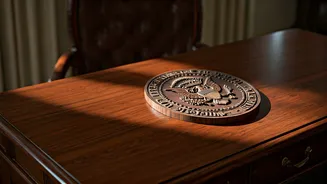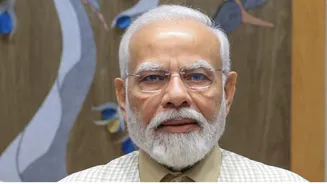Setting the Stage
The United States Constitution, established in 1789, did not initially impose a limit on the number of terms a president could serve. George Washington,
the first president, set a precedent by voluntarily stepping down after two terms, a decision he believed was essential for the health of a democracy. This action established an unwritten rule that guided the country for over 150 years. This decision wasn't formally codified, but served as a powerful guiding principle. Despite the lack of an official rule, the idea of limiting presidential tenure gained traction over time, rooted in concerns about potential abuse of power and the concentration of authority in one individual.
Framing the 22nd
The significant shift came in 1947 with the 22nd Amendment to the Constitution. This amendment formally limited a president to two terms in office. The passage of the 22nd Amendment was a direct response to Franklin D. Roosevelt's unprecedented four terms in office, serving from 1933 until his death in 1945. Roosevelt's extended tenure, while occurring during a period of immense national and global crisis including the Great Depression and World War II, sparked worries about the potential for autocratic tendencies. It was feared that such prolonged power could lead to a disregard for democratic principles. The amendment aimed to prevent an individual from accumulating too much power.
Arguments For Limits
Those who champion term limits highlight several advantages. They assert that it prevents any single person from becoming too powerful, and curbs the potential for corruption. Limiting terms is seen as a way to promote leadership renewal, bringing fresh ideas and new perspectives into the highest office. This system also aims to prevent the entrenchment of a single political philosophy. The argument is that it helps to ensure a broader range of opinions and viewpoints shape policy. This helps to safeguard against the stagnation that can occur when a leader stays in power for a prolonged time. Term limits also supposedly improve government accountability, as leaders can't rely on long-term power to avoid scrutiny.
Arguments Against Limits
Conversely, opponents of term limits present equally compelling viewpoints. They argue that restricting a president to two terms can deprive the nation of skilled leadership, especially in times of crisis. Great leaders might be prematurely forced to leave office at the peak of their abilities, leading to a loss of experience and expertise. Critics also believe that term limits can weaken the president's influence during their second term. A leader with a fixed term may find it more difficult to push through significant policies and initiatives, as they become a 'lame duck'. Moreover, some suggest that term limits place undue emphasis on short-term political goals over long-term strategic planning. They claim that limits reduce the ability of a president to execute long-range strategies and build sustained political capital.
Impact on Politics
The 22nd Amendment has significantly shaped American politics. It has altered presidential behavior and the strategies used by political parties. Presidents are more often focused on leaving a legacy, especially towards the end of their second terms. This leads to a greater focus on major policy initiatives and lasting achievements. Term limits have also influenced how political parties approach their candidate selection process. With the understanding that presidential terms are limited, parties now emphasize the importance of identifying and supporting candidates who can win, which leads to changes in election strategies. The amendment also affects how the public views the presidency, promoting the idea that the office is not a permanent fixture. This ensures the ongoing circulation of power.
Evolving Debate
The debate about presidential term limits continues. Proponents of keeping the 22nd Amendment in place contend that it remains a vital safeguard against potential abuses of power. They believe that it guarantees a dynamic and healthy democratic system. Those advocating for the removal or modification of term limits call for a reevaluation of the rule. They suggest that the amendment might restrict the nation's ability to retain exceptional leadership. Political scientists and historians continuously examine the impact of term limits on leadership, policy-making, and American democracy. These experts explore the evolving effects of the 22nd Amendment in our constantly changing world. This continuing dialogue underlines the importance of this topic.














